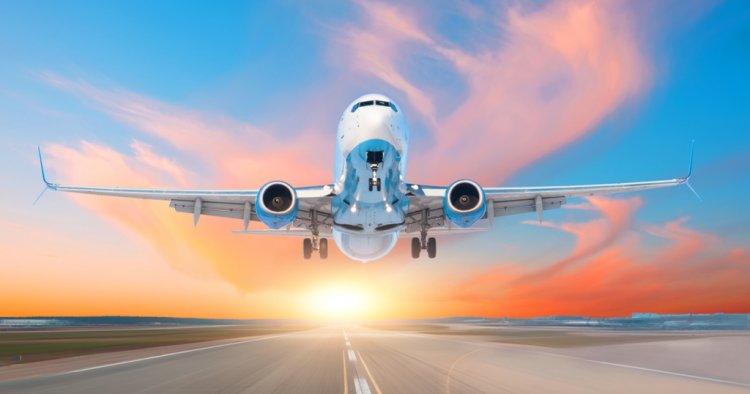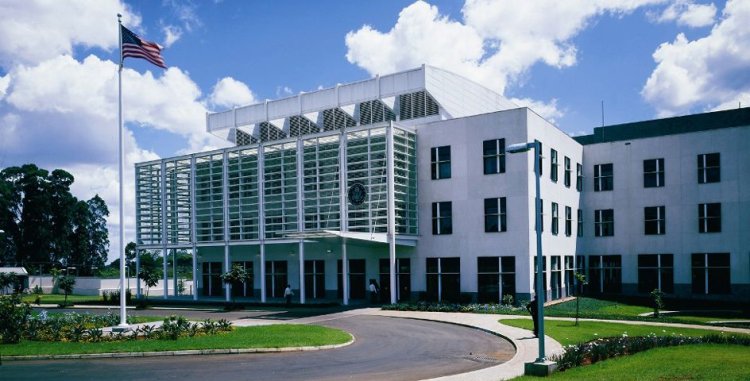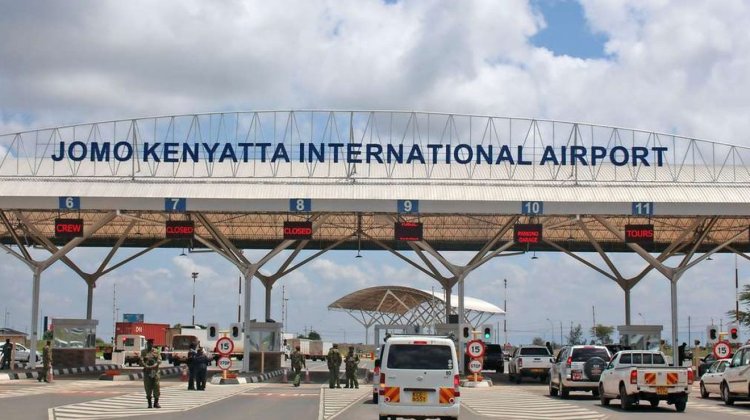You Can Be Denied A Visa- Here's Why
The visa is usually stamped or glued into the bearer's passport.

Getting a visa to travel to another country is very possible and very necessary. This is an official document that allows the bearer to legally enter a foreign country.
The visa is usually stamped or glued into the bearer's passport. There are several different types of visas, each of which affords the bearer different rights in the host country.
However, the saga that roped in Africa's fastest man, Ferdinand Omanyala, who has since got his visa to travel to the United States (US) for the 2022 World Championships at Oregon, served as a crude reminder that you can be denied a visa.

His case is not an isolated one as one Kenyan, Stacey Nyandiko, narrated how she was denied a visa to fly to Europe, specifically Belgium, though it was a torrid experience as she was first of all informed that touring the country and going for the biggest Electronic dance music (EDM) festivals in the world, Tomorrowland, were not reasons to travel.
She was visibly annoyed to find out that as a person of colour, she needed more reasons to travel there- or to any European nation.
"My hunt for a Belgium visa: So I have just been told that touring and Tomorrowland is not enough reason to travel. That as a black person I need more reasons to travel to Belgium or to any country in Europe," she tweeted on Wednesday, July 13.
My hunt for a Belgium visa ????????
So I have just been told that touring and @tomorrowland is not enough reason to travel. That as a black person I need more reasons to travel to Belgium or to any country in Europe. @BelgiuminKenya — .????????♂️ (@nyandiko_) July 13, 2022
According to US laws, visa applicants should be interviewed by a consular officer at a US Embassy or Consulate. After relevant information is reviewed, the application is approved or denied, based on standards established in the laws.
While the vast majority of visa applications are approved, the law sets out many standards under which a visa application may be denied. An application may be denied because:
1. The consular officer does not have all of the information required to determine if the applicant is eligible to receive a visa
2. The applicant does not qualify for the visa category for which he or she applied
3. The information reviewed indicates the applicant falls within the scope of one of the inadmissibility or ineligibility grounds of the law.
4. An applicant’s current and/or past actions, such as drug or criminal activities, as examples, may make the applicant ineligible for a visa.
If denied a visa, in most cases the applicant is notified of the section of the law which applies. Visa applicants are also advised by the consular officer if they may apply for a waiver of their ineligibility.
If a consular officer finds you are not eligible to receive a visa under US law, your visa application will be denied (refused), and you will be provided with a reason for the denial.
Here are reasons you can be ineligible for a US visa:
- Did not fully complete the visa application and/or provide all required supporting documentation
- Did not establish eligibility for the visa category being applied for or overcome the presumption of being an intending immigrant. That is you need better reasons than just to travel and not just leisure
- Was convicted of a crime involving moral turpitude
- Was convicted of a drug violation
- Has two or more criminal convictions for which the total sentence of confinement was 5 years or more
- Did not provide an adequate affidavit of support when one was required; therefore denied under public charge
- Misrepresented a material fact or committed fraud to attempt to receive a visa
- Previously remained longer than authorized in the United States.

US Embassy in Kenya. /FILE
Your employment/unemployment status coupled with a lack of strong family ties to bring you back to Kenya after travel are also reasons you can be denied a visa.
The documents you present can also raise questions amongst the Embassy. The Embassy also records a possible limit reached on immigration quotas and due to these limited appointments, only urgent matters will be expedited e.g. medical care.
All applicants should expect delays in most stages of visa processing. Since COVID-19, the processing has led to a backlog.
Possible language barriers leading to misinterpretation may also lead to your visa application being in limbo, especially when it's a matter of travel needs.
Giving too little or too much information during the process on your part can attract more questions and red flags, and hamper your chances of getting a visa.
Double-check that you are indeed applying for the proper visa. Many Kenyans make the mistake of applying for the wrong visa, mostly due to failure to do due diligence to ensure you prepare for the visa issuance process.
Data on the visa process and interviews are widely available on the internet as well as on government sites that contain information to assist you every step of the way.
Kenyans blocked from being issued visas can apply again under second chances by Embassies and consulates. Those with mistakes are allowed to correct any errors they made before submitting new requests.
If you reapply for a visa after being found ineligible, you must submit a new visa application and pay the visa application fee again. This fee is non-refundable.
If the process is rejected, Kenyans who apply through travel agencies may be refunded some of their application fees. A visa however still does not guarantee a Kenyan entry into a foreign country as a permit allows a Kenyan to enter the other country of visit.
An entry visa to Kenya is valid for a period of three months from the day it was issued.

The entrance to the Jomo Kenyatta International Airport. /NAIROBI NEWS

 admin
admin 




